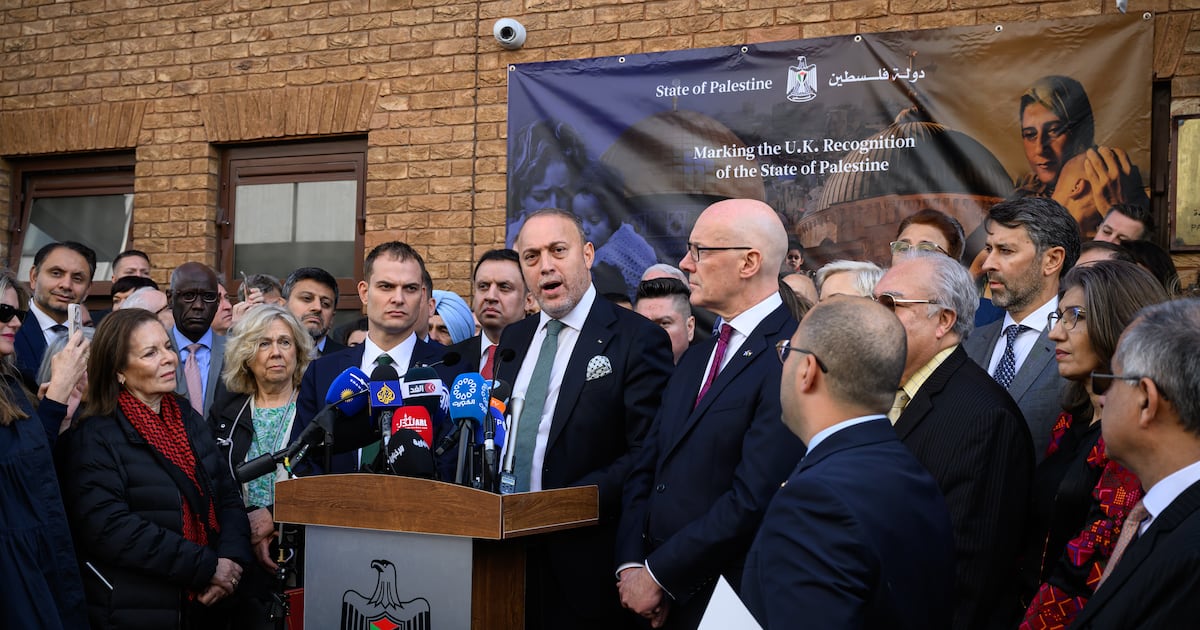More than 30 students from Gaza have arrived in the UK to take up scholarships at universities.
The cohort of 34 includes recipients of the British government’s Chevening scholarship, which recognises future leaders.
Yet three students rejected their offers after they learnt that they would not be able to bring their children and spouses, and one of them left his family behind, according to the Bseisu Foundation, which supported the evacuations.
“The Bseisu Foundation has ensured that UK university scholarship holders from Gaza, including our own scholars, are successfully evacuated to the UK,” said the grant-giving charity’s chief executive Steven Turner.
The charity is supporting 11 students who arrived from Gaza this month, with a range of grants including for their living costs, scholarships, and visa fees, at leading institutions including the University of Warwick and University College London.
“Students coming to study in the UK should not have to choose between their education and being in the same place as their partners or children,” he told The National.
The students were first taken from Gaza to Jordan for biometric checks. Foreign Secretary Yvette Cooper thanked the Jordanian government for its support in helping the students “leave to take up their places”.
Their evacuation from the war zone was done in co-ordination with the Israeli authorities, the Foreign, Commonwealth and Development Office said.
Husam Zomlot, the Palestinian ambassador in the UK described how the students trapped in a war zone had defied the odds by obtaining “extremely competitive” scholarships. “Can you begin to imagine what it took for them and their families and communities to achieve this,” he said on Monday.
“To study and take exams and fill out applications in the throes of genocide, under bombs, without electricity and on empty stomachs, and they still made it to their universities, and they will be there today.
“These are the Palestinian people, this is the Palestinian spirit, this is the spirit of Palestine,” added Mr Zomlot.
Ms Cooper said the war had denied many in Gaza access to education and paid tribute to those who had obtained scholarships.
“Students in Gaza have shown incredible resilience and unwavering determination to pursue their studies against an appalling backdrop of death, destruction and famine,” she said.
“Our support also reflects the UK’s commitment to the future of postwar Gaza and its reconstruction, where educating the next generation will play a vital role.”
The students were informed last month that they would be getting evacuated from Gaza by the UK government in order to start their courses in October.
The announcement came after a campaign led by Labour MP Abtisam Mohamed earlier this summer to ensure the students would be able to travel from Gaza.
“The UK government has worked intensely to assist them to leave Gaza while the situation remains incredibly challenging,” the Foreign Office said.
But many students have been left behind, either because they could not leave Gaza, or because they were not able to take their children with them.
Among them is Manar Al Houbi, who had obtained a scholarship for a PhD at the University of Glasgow but was told she would not be able to travel with her three children and husband.
She preferred to stay in Gaza. “I was told just days before our evacuation, when I received an email from the FCDO … It is impossible for me to leave my children behind,” she told the BBC.
Though Ms Al Houbi’s children had been given visas to the UK, they were unable to leave Gaza and the UK would not be facilitating their evacuation.
But there is also an immigration crackdown which prevents most students from bringing their dependents.
A University of Oxford official said the university was “very concerned” about the “risks preventing talented Gazan scholars with very young children and babies from taking up their places”.
The Refugee Council’s chief executive Enver Solomon said the measures were “excessively harsh”.
“No one should be forced to choose between their education and their family,” he said.
“It is excessively harsh to tell students fleeing the appalling devastation in Gaza that while they can study safely here, they must leave their loved ones behind.”

